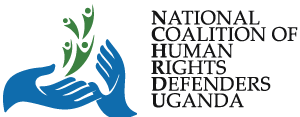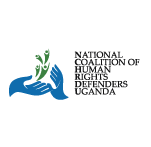- August 23, 2021
- Posted by: hrdcoalitionAdmin
- Category: Uncategorized

Introduction
Civil society space in Uganda is rapidly shrinking. Domestic and international rights organizations report that the Government of Uganda has grown increasingly less tolerant of criticism over the past decade. Freedom of expression across the country is in significant jeopardy, retrogressive laws have been enacted and state institutions have adopted a more ruthless response to civic activists. NGOs that engage in monitoring the conduct of the state and advocate for human rights, women’s rights, in anti-corruption and accountability, land issues and democratic governance have experienced growing restrictions on the space available for them to carry out their activities. The Black Monday movement, for example – a civil society-led campaign in 2012 to protest the theft of public funds by public officials and politicians – was quickly closed down and senior figures arrested.
Independent civil society organizations are being openly threatened and placed under excessive scrutiny by senior government officials. For example, on 1 June, 2019 Uganda’s Minister for Internal Affairs called for increased regulation and supervision of NGOs in response to a civil society report detailing cases of land grabbing in Uganda. He accused the authors of the report – Uganda Land Alliance and Oxfam – of “peddling lies” and urged NGOs to share their reports with the government before releasing them to the public.
Introduction to consultancy assignment
Uganda faces challenges related to the shrinking operating environment for civic space, with a worsening human rights situation and restrictions as a consequence of the COVID-19 crisis. Firstly, prior to the onset of COVID-19, citizens were experiencing repressed physical and digital civic spaces primarily associated with regressions in access to information, means of expression and limitations to peaceful assembly as reported by the CIVICUS civic space monitor. These were occasioned by the passing of regressive laws including the NGO Act (2016), and the Public Order Management Act (POMA, 2013) to grossly abuse or curtail civic and political rights. Laws such as the Anti-Terrorism Act (Amended 2017) and the Anti-Money Laundering Act (2013) arising from a global drive to fight terrorism and extremism have also been unjustly used to further curtail the operations of mainly governance and human rights organisations and control citizens’ demand for accountability in the country. Secondly, public health measures and existing laws implemented in Uganda to mitigate against the spread of COVID-19 are added onto an already repressed environment and are further used against citizens to violate civil and political rights. This was evidenced during the national election in January 2021 which saw non-accreditation of CSOs that were planning to monitor the 2021 elections, broad suspension of the internet, arrests of opposition leadership, their supporters and human rights activists and the freezing of CSO bank accounts on allegation of terrorism financing. Such actions were only receded after declaration of the election results. With regime longevity, CSOs and HRDs are at increasing risk of government restrictions and threats thus requiring new capacity building interventions to document, collaborate, advocate and where possible ‘push-back’ on measures responsible for closing space, using tools and security skills in line with the changing context for effective and impactful responses to human rights violations (HRVs).
Reversing the shrinking civic space trend requires a multi-faceted and harmonized approach that prizes trust, efficiency, and local knowledge. There are robust and ongoing conversations on issues affecting civic space, but the wide range of conversations have diluted both the urgency and nuance in figuring out how to ensure civil society actors can and continue to do their work. And compared to what we do know about the shrinking civil space problem, little is known about how individual organizations experience shrinking civic space in different geographic and political contexts, or the practical solutions funders and grantees use to mitigate the effects of this damaging trend.
Due to such trends, the National Coalition of Human Rights Defenders-Uganda intends to implement a project that will promote an enabling environment for civil society actors within the human rights and democratic governance realm and address a lack of protection for human rights, including freedoms of speech, assembly, and association. An enabling space requires accountability and responsiveness from both duty bearers and key stakeholders such as the Internal Affairs Ministry where the NGO Bureau is situated and national human rights institutions including The Uganda Human Rights Commission (UHRC).
The key objective of this consultancy therefore is to carry out an analysis of the policies/laws (NGO Law, financial intelligence laws including anti-terrorism measures/funding, cyber security laws and public order management Act), Anti sexual offences bills and others. Capturing evidence of how they have narrowed civic space and curtailed the rights of HRDs and CSOs. The focus will also be placed on COVID-19 restrictions/SOPs, government use of NGO laws to reduce civic space.
Specific activities the consultant will perform:
- Conduct a rapid assessment: The consultant will conduct an assessment into about policies (laws) that are affecting civic space, capturing evidence of how they have narrowed civic space and curtailed the rights of HRDs and CSOs. The focus will be placed on COVID-19 restrictions/SOPs, government use of NGO laws to reduce civic space like the NGO Law, financial intelligence laws including anti-terrorism measures/funding, cyber security laws and public order management.
- Conduct a validation workshop: The Consultant will design a one-day long validation workshop in light of study findings.
- Reporting: The consultant will provide details report of the Workshop. The report should contain details of the discussion, activities/mechanisms agreed by participants of each region, challenges, and recommendations.
- Final assessment report produces
Duration and Deliverables of the Consultancy
The key product will be an assessment report which will be benchmarked on the 04 policies/laws that are affecting civic space, capturing evidence of how they have narrowed civic space and curtailed the rights of HRDs and CSOs: The NGO Law, financial intelligence laws including anti-terrorism measures/funding, cyber security laws and public order management. The total duration of this consultancy is one month. Details are described in the table below:
| Activity | Deliverable | Duration | Remarks |
| Conduct a rapid study into the laws that are affecting civic space. | Rapid assessment report | 14 days | The Consultant will work both physical & online with participant in advance to complete this activity. |
| Deliver/Conduct a validation workshop | 1 day validation workshop | 1 day | The consultant will facilitate a validation meeting to share a first draft of the assessment report |
| Develop the final assessment report | Work on and produce a final report | 05 days | The consultant will produce a final report |
Qualification and Skills Required:
- The applicant should have Master degree from a recognized university in the field of development studies, management, social science or other relevant fields.
- Minimum of seven years’ relevant experience. Previous experience working with/on civil society, research and analysis of the current laws affecting the civic space of CSOs will be an added advantage.
- someone who has a background in legal analysis
- Strong diplomatic skills a high level of cultural sensitivity and familiarity with an international and/or regional work environment.
- An ability to work in and through networks and alliances
- An ability to work with diverse actors
- Fluency in English (written and verbal)
Consultation Fee:
The consultant cannot sub contract this assignment to any other person or organization. The consultant is required to deliver quality services as per the plan and in close coordination with relevant stakeholders. Please mention your proposed daily consultancy fee for this 21-day assignment in the cover letter, include a financial and technical proposal.
Application Process:
The consultant (s) should send the following information to [email protected] by 4pm on the 7, September 2021 with Reference; Consultancy NO. CISU/NCHRD-U/2021. (Only shortlisted candidates will be contacted)
- A brief proposal of no more than 2 page indicating how they will approach the task as outlined and including 2 references – at least 1 of which needs to be an organisation that work has been done for in the last 12 months.
- At least 1 example of work completed in the last 12 months.
- A budget for the consultancy which outlines an overall cost and a daily cost.
- A brief profile/CV of the consultant(s) that will be responsible.
N.B. The winning proposal will be one that indicates an appropriate implementation model that is considerate of the current he

